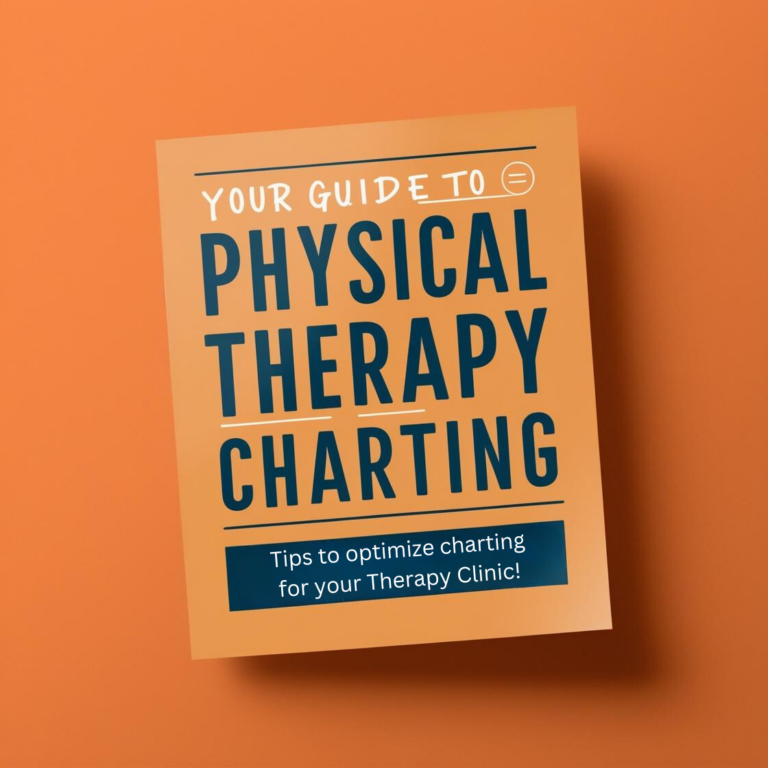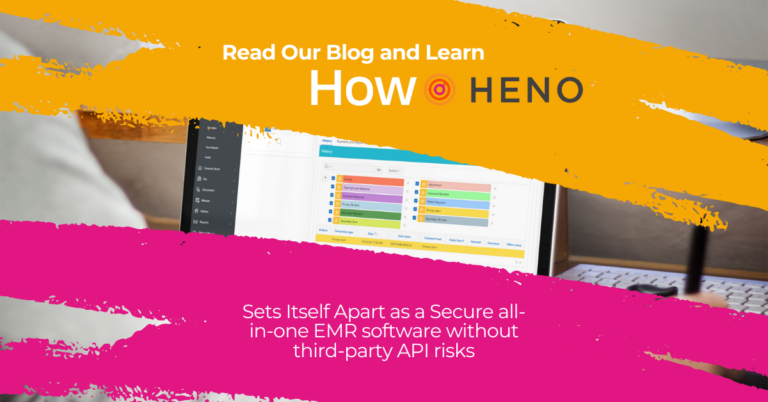Are Healthcare Portals HIPAA Compliant?
Technology allows people to do almost anything online – and that includes scheduling appointments with healthcare providers. And while a lot of practices are choosing practice management software that includes a healthcare portal for patients to use, there’s one question that everyone seems to be asking:
“Are healthcare portals HIPAA compliant?”
It’s an important question to ask. After all, HIPAA is the law that keeps your patients’ personal medical information safe. At HENO, we know how important patient confidentiality is. Here’s what you need to know about HIPAA regulations and using healthcare portals.
What Do HIPAA Regulations Say About Patient Access to Health Records?
Most people know that the Health Insurance Portability and Accountability Act (HIPAA) protects the privacy of their medical records. What many don’t realize is that it also specifies that patients have a right to easy access to the personal medical records.
Before the wide use of healthcare portals, “easy access” meant that providers needed to make records available to patients who asked for them. That usually meant the patient coming to a practice and asking to see their medical records. Providers could charge patients for copies of their records.
Healthcare portals make it much simpler than that. With a secure patient portal, patients can log in at any time and view their records. In other words, in the area of patient access, healthcare portals have improved HIPAA compliance.
What About the Security of Electronic Health Records?
Security is, in many ways, the most important thing covered by HIPAA regulations. When patients’ personal medical records are vulnerable, it can cause serious problems of all kinds. Not only could someone unscrupulous potentially access the records, it can also cause family problems when medical records are not adequately protected.
HIPAA lays out, in very clear terms, the obligations of healthcare providers when it comes to the security of medical data. Not only must providers take care to put security measures in place, they also have a clear obligation to do the following things if there’s a breach:
- They must advise all patients that there has been a security breach.
- They must advise the Department of Health and Human Services (HHS) of the breach.
- If the breach has affected more than 500 people in a state or jurisdiction, they must advise the media of the breach to ensure all patients know about it.
HIPAA regulations are designed to protect patients’ personal medical records. They put the burden of protection on healthcare providers.
HIPAA Compliance and Healthcare Portals
So, are healthcare portals HIPAA compliant?
The short answer is yes, they are and must be. But, let’s talk about what that means specifically for you as a provider.
Under HIPAA regulations, your practice is required to make protecting patients’ medical data a priority. Practices that violate HIPAA may be subject to fines depending on the nature of the violation. Deliberate violations are more heavily penalized than accidental violations.
A failure to adhere to HIPAA regulations can lead to a fine that ranges anywhere from $50 per incident to $50,000 per incident.
For a medical practice to be HIPAA compliant, any healthcare portal they provide for the use of their patients must be HIPAA compliant. HIPAA compliance is a key feature of every reputable healthcare portal.
At HENO, we’ve recently finished building our new healthcare portal. Because we’re healthcare providers, too, we understand the responsibility you feel toward your patients. We feel it too. That’s why we’ve made sure that our portal is HIPAA compliant and loaded with the best security available to ensure that your patients’ electronic health records are protected.
Which Security Features Can Ensure HIPAA Compliance for Healthcare Portals?
HIPAA regulations require healthcare providers to ensure the security of patient records. The primary regulation simply says that providers must protect electronic health records. It doesn’t specify how to do it, but here are some of the features that are most useful.
- Limiting access to electronic health records. Patients may provide their login information to family members if they choose — there’s no way to prevent that — but portals require a password to log in.
- Providers must limit employee access to records. Only people who need to be able to access records should be able to.
- In addition to password protection, some portals use two-factor authentication, which requires patients to enter a code that’s sent to their mobile device to access their records.
- Encryption is not required under HIPAA, but it’s one of the best ways to protect data because it prevents the data from being used.
- Audit trails make it easy to track who has had access to medical data.
- Privacy Terms and Conditions are necessary to ensure that patients know their privacy rights.
Patient healthcare portals help medical practices adhere to HIPAA regulations both by providing patients with easy access to their medical records and by using security measures to protect those records. With this in mind, we’ve ensured that the new HENO portal is fully HIPAA-compliant and designed to keep your patients’ medical records safe.
To learn more about HENO’s new HIPAA-compliant patient portal, click here to schedule a free demo.





